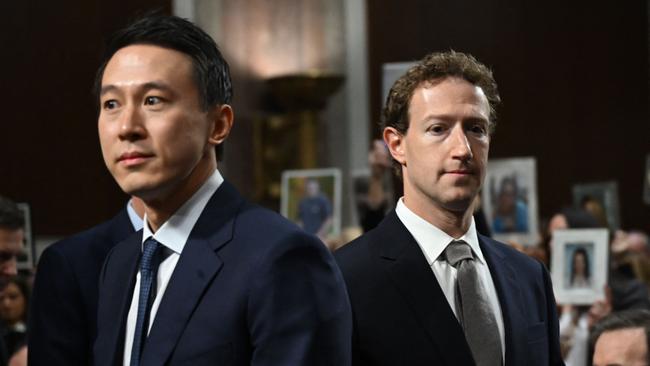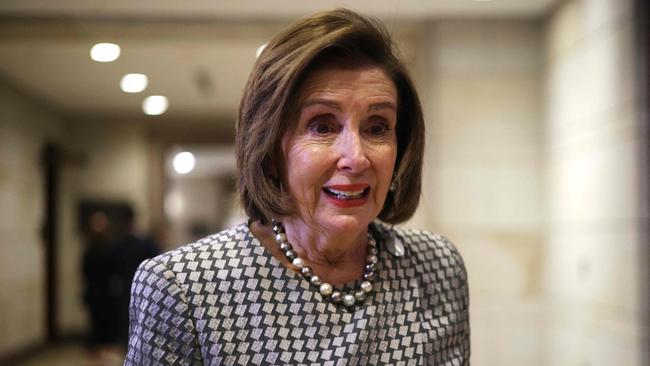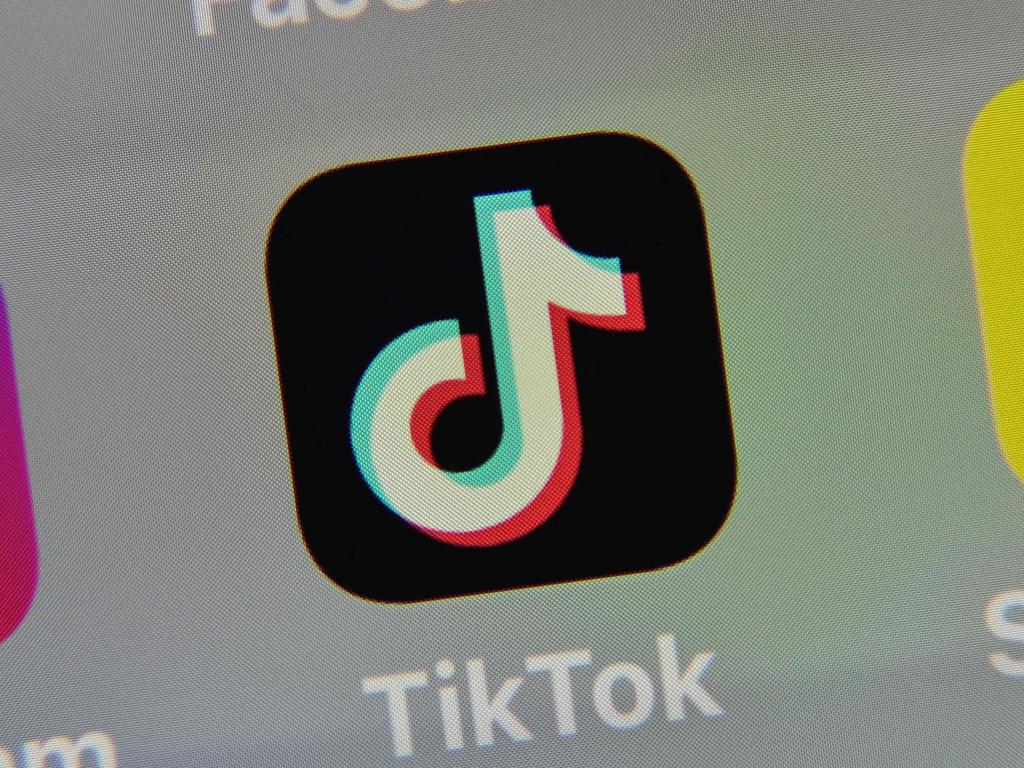‘No plans’ to ban TikTok in Australia as US passes bill to ban app or force its sale
The PM says he’s received no advice to ban the app after the US passed a bill to force Chinese parent company ByteDance to sell within six months, or face the application being banned.

Anthony Albanese has said his government has “no plans” to ban TikTok in Australia, after the US House of Representatives passed a bill that would ban TikTok unless its parent company ByteDance sells it to non-Chinese owners within six months.
When asked on radio station WSFM if Australia would follow suit, the Prime Minister said: “We’ll take advice but we have no plans to do that.
“I think you’ve got to be pretty cautious, you’ve always got to have national security concerns front and centre but you also need to acknowledge that for a whole lot of people, this provides a way of them communicating and so we haven’t got advice at this stage to do that,” Mr Albanese said.
“We don’t use TikTok on government phones and that is an appropriate measure that we’ve put in place.”
The bill, which faces an uncertain path in the Senate, passed overwhelmingly in the Republican-controlled lower house of congress by 352 to 65 despite opposition from Donald Trump, who once proposed a ban himself as president in 2020.
China’s foreign ministry quickly slammed the bill, deepening an ongoing feud between Washington and Beijing over trade, intellectual property and national security, as “an act of bullying”.
TikTok, which would fetch several hundred billion of US dollars on the open market, has been within US regulatory crosshairs for years amid concern the Chinese Communist Party could compel ByteDance to pass on information on US users or tweak the application’s algorithm to subtly affect American opinion.
Republican Congressman Mike Gallagher, one of the champions of the bill, said on the floor of the House that the landmark bill would “force TikTok to break up with the Chinese Communist Party”. “This is a commonsense measure to protect our national security,” he said.
President Joe Biden, who recently joined TikTok as part of his political campaign for re-election to connect with younger voters, has promised to sign any congressional ban bill if it makes its way to the Senate, where Democratic party leader Chuck Schumer, who has taken a more ambivalent position on the ban, said he would “review” the bill.

If successful a ban could prompt similar calls in Australia, where the Albanese government became, in April last year, the last Five Eyes jurisdiction to ban the application from government mobile phone following introduction of similar bans by US state and federal governments.
“Just this week, TikTok users were led to believe they needed to call their congressional office to continue using the app. If that can happen now, imagine what they could do in one of the most important elections of our lifetimes this coming November,” said Democrat congressman Andre Carson on social media.
The US intelligence community’s annual threat assessment, released this week, said TikTok accounts run by PRC propaganda arms “reportedly targeted candidates from both political parties during the U.S. midterm election cycle in 2022”.
TikTok in a statement released had said the pending legislation would “strip 170 million Americans of their Constitutional right to free expression”.
“This will damage millions of businesses, deny artists an audience, and destroy the livelihoods of countless creators across the country.”
A ban, especially in a presidential election year, would pose risks for both major political parties given electoral support for a ban among US voters fell from 50 per cent to 38 per cent over the six months to October last year, to according to Pew Research.
More than 30 per cent of 18 to 29-year-olds, and 15 per cent of those aged 30 to 49, in the US receive their news via TikTok, more than double the share of a few years ago, the same
“If you get rid of TikTok, Facebook and Zuckerschmuck will double their business,” he wrote on social media ahead of the vote. “I don’t want Facebook, who cheated in the last Election, doing better. They are a true Enemy of the People!”
“Frankly, there are a lot of people on TikTok that love it. There are a lot of young kids on TikTok who will go crazy without it. There are a lot of users. There’s a lot of good and there’s a lot of bad with TikTok,” Trump told CNBC on Monday (Tuesday AEDT).
The bipartisan bill, formally called Protecting Americans from Foreign Adversary Controlled Applications Act, calls to ban TikTok and any “successor applications” unless the Chinese tech group owner sells its shares.
Democrat ‘squad’ member Alexandria Ocasio Cortez said the bill was “incredibly rushed” and voted no.
“There are serious antitrust and privacy questions here, and any national security concerns should be laid out to the public prior to a vote,” she said.
Republican congressman Thomas Massie said the bill would impinge on free speech and was a Trojan horse that gave the US President too much power to “decide what Americans can see on their phones and computers”
“The so-called “Tik Tok ban” is actually a Trojan Horse that could allow the President to ban any website or app merely by asserting that it is “controlled or guided” by a foreign adversary,” said Robert F Kennedy, independent candidate for president.
Concern about the application flared up in November following Hamas terrorist attacks on Israel, when Osama bin Laden’s 2002 ‘Letter to America’, which controversially justified the 9/11 terrorist attacks on US foreign policy in the Middle East, went viral.






To join the conversation, please log in. Don't have an account? Register
Join the conversation, you are commenting as Logout